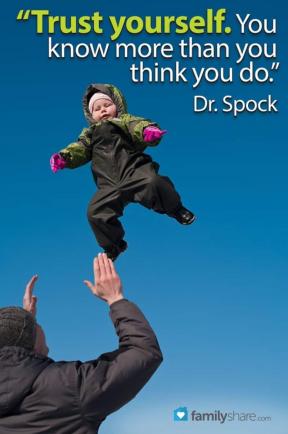
Teaching children to trust others will build the security and self-confidence that they need in order to have solid, healthy relationships as they go through life.
According to Charles E. Schaefer, Ph.D., in his book "How to Influence Children,"
"The development of trust in children can pay rich dividends. Studies have shown that people who trust more are less likely to lie ... They are more likely to give others a second chance and to respect the rights of others. Moreover, people high in trust of others are less likely to be unhappy, conflicted, or maladjusted; they are liked more and sought out as a friend more."
Parents, as the first and most important adults in their child's life, can have a great impact on that child's ability and willingness to trust others. Despite their good intentions, parents can unintentionally damage their child's trust. The following suggestions will help you avoid common mistakes that parents often make and help you build trust in your child.
1. Don't make promises you don't intend to keep
Sometimes parents tell their children they will do something that they aren't sure they can actually do because they don't want to cause conflict or hurt feelings. However, it is far worse for your child to expect something from you, then be disappointed. If you are not sure that you will be able to do what your child is asking, be honest. Say, "I'm not sure I will be able to do that tomorrow, but I will try."� This will prevent your child from building up false expectations only to have them dashed.
2.
Don't shield them from unpleasant realities
For example, if your child needs to get a shot, don't tell her that it won't hurt. It will hurt, and she will discover that fact as soon as the needle enters her body. Consequently, the next time you tell her something she probably won't believe you. Instead, tell her that it will hurt a little, but it will be over very quickly and that you will hold her hand the whole time. More serious circumstances such as death, divorce, or serious illness can be difficult to explain to your children. However, if you keep them in the dark, or tell them that nothing is wrong they will find out what is going on eventually and will be blindsided by the news. This teaches children not to trust the adults in their life. Give your children honest answers to their questions while reassuring them that you will take care of them and help them through the hard times ahead.
3. Don't be afraid to admit when you were wrong
. Apologizing to your children for your actions doesn't result in their lack of respect. Rather, it will help your children feel closer to you and will teach them about forgiveness. Additionally, setting this type of example will teach your children that it is common to make mistakes and the best way to handle the situation is to own up to the mistake, apologize and move on.

